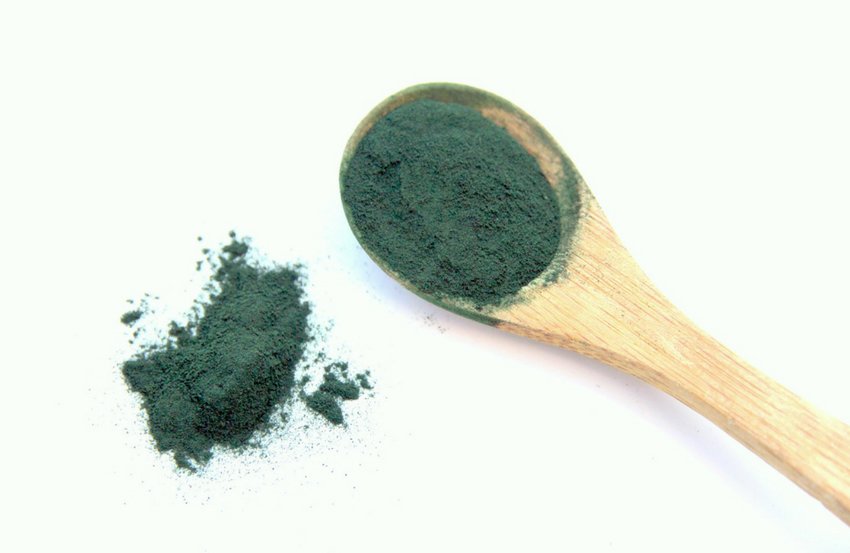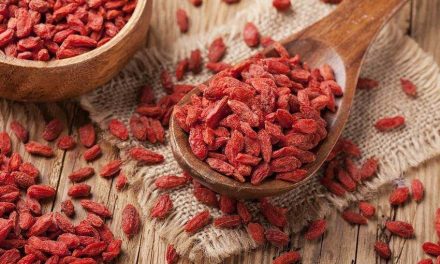Spirulina is a spiral-shaped microalga whose deep greenish-blue color gives water its greenish characteristic. It grows naturally in warm fresh-water lakes and in salt water. Spirulina is also cultivated in man-made reservoirs that are free from herbicides, pesticides and GMOs.
Spirulina is one of the most nutrient-dense foods on earth.
It contains 55-70% protein (higher than chicken, beef and soybeans), 8 essential amino acids, 10 non-essential amino acids, linoleic acid, beta carotene, high levels of gamma-linolenic acid (GLA), arachidonic acid, vitamin B12, calcium, iron, phosphorus, nucleic acids DNA & RNA, chlorophyll and phycocyanin (a pigment-protein).
Have you heard of the many spirulina benefits?
Spirulina is a very good supplement because of its abundance of nutrients as listed above. Gram for gram, it is possibly the single most nutritious food on earth.
Just one tablespoon of dried spirulina powder (7 grams) contains:
4g of protein, 11% of RDA of vitamin B1, 15% of the RDA of vitamin B2, 4% of the RDA of vitamin B3, 21% of the RDA of copper, 11% of the RDA of iron.
You get all that and more but only 20 calories!
The excellent quality of the protein makes this supplement particularly good for vegans. There are many spirulina benefits that are linked to its nutrient composition.
Spirulina Benefits as a Supplement:
Spirulina is available in powder form and tablet form. Because of its high nutrient content, it has a lot of health benefits. Most spirulina supplements recommend 1-3 grams per day, but you can take up to 10 grams per day without harm.
1. Antioxidant and Anti-inflammatory Properties

2. Anti-cancer: One of the Major Spirulina Benefits
Spirulina seems to have anti-cancer properties and it has been studied a lot in connection with cancer of the mouth. In one 12-month study, 87 people from India who had precancerous lesions in the mouth took 1 gram of spirulina per day. After 12 months the lesions had completely disappeared in 45% of those on spirulina supplement and 7% of those in the control group. Of those whose lesions had disappeared, 50% developed lesions again a year after they stopped taking the spirulina.
Animal studies have also shown spirulina’s ability to reduce cancer development and tumor size. This is one of the most important spirulina benefits.
3. Spirulina Lowers LDL and Triglyceride Levels in the Blood
Spirulina has been found to lower the total cholesterol levels, LDL cholesterol levels and triglyceride levels while increasing HDL levels. That makes it a super-protector against heart disease. Spirulina is also effective in lowering these markers in diabetes. In one study, 25 type 2 diabetes patients took 2 grams of spirulina per day and they had a huge improvement on all three markers.
Then there is a three month study that gave people with high blood cholesterol levels 1 gram of spirulina per day and managed to lower triglycerides by around 16.3% and LDL by 10.1%. Several other studies have used doses as high as 8 grams of spirulina per day and found favorable effects.
4. Preventing LDL Cholesterol Oxidation

5. Spirulina Appears to Reduce Hypertension
A dose of 4.5g of spirulina per day has been found to reduce blood pressure. This is significant as high blood pressure leads to many serious diseases such as chronic kidney disease, heart disease and strokes.
6. It Relieves Symptoms of Allergic Rhinitis
Inflammation of the nasal airways caused by environmental allergens is characteristic of allergic rhinitis. Spirulina is a well-known and well-used alternative treatment for allergic rhinitis as one study have found out. It is obvious that people have been aware of the many spirulina benefits for centuries.
7. Spirulina Found to Be Effective Against Anemia
Because of its high iron content and other nutrients, spirulina is effective in reversing anemia. In a study of 40 old people with a history of anemia, supplementing with spirulina over 12 weeks increased the hemoglobin content of red blood cells and the immune function improved.
8. Spirulina Improves Muscle Strength and Endurance
In some studies, spirulina appeared to be benefit athletes by improving muscle strength and endurance, increasing the time that it took participants to become tired. It should be seriously considered as a supplement for minimizing exercise-induced oxidative damage which contributes to muscle fatigue. If you are an athlete, you may be interested in this benefit in addition to the many spirulina benefits.
9. It Lowers Blood Sugar Levels
In both animal studies and human studies, spirulina has been found to significantly lower blood glucose levels. In some cases, it has performed better than popular diabetes drugs.
10. Removal of Heavy Metals from the Body
Spirulina binds with heavy metals in the body and helps to remove them from the body. In a study carried out on 41 people suffering from chronic arsenic poisoning, the participants were given 250mg of spirulina and 2mg of zinc twice per day over 16 weeks. Taking these supplements led to higher excretion of arsenic through urine, reducing arsenic toxicity significantly. It can be concluded that the combination of 250mg of spirulina and 2mg of zinc is effective treatment for chronic arsenic poisoning.
New evidence suggests that spirulina also binds with radioactive isotopes and may be useful in treating people exposed to radioactive materials.
Are There Any Side Effects?
So far spirulina has not caused any side effects. However, it contains iodine, meaning that those who happen to be allergic to iodine should avoid it.
Who Should Avoid Spirulina?

Spirulina as a superfood
Spirulina is definitely a superfood that is highly digestible and effective in improving health. With the exception of those who are recommended to avoid it, most people should take it to improve their health.












